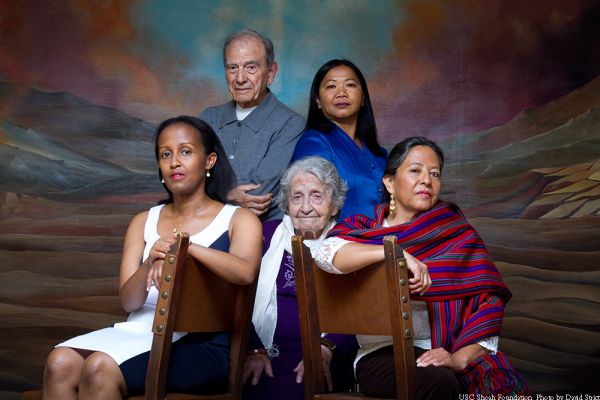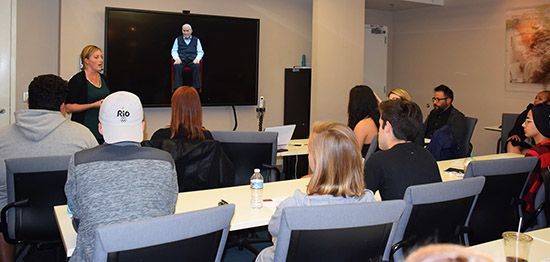
100 Days to Inspire Respect
David and Sidney are Jewish and were born in Poland. They describe the prejudice and violence they experienced during the 1930s in Poland.
100 Days to Inspire Respect
David and Sidney are Jewish and were born in Poland. They describe the prejudice and violence they experienced during the 1930s in Poland.
USC Shoah Foundation was visited Friday by Dr. Nanci Adler, head of the Holocaust and Genocide Studies program at the University of Amsterdam.
While more than one million Jewish children died during the Holocaust, some survived in hiding. This video tells the story of Eva Lewin and her experience in the Kindertransport, a series of rescue efforts that helped nearly 10,000 Jewish children escape from Germany, Austria, and Czechoslovakia to safety in Great Britain.
Yehudi Lindeman, a child survivor from the Netherlands, speaks of the importance of all people learning from the Holocaust.
100 Days to Inspire Respect
Rita Kuhn shares her personal memory of the Rosenstrasse Demonstrations.
The Jewish Museum in Prague has teamed with USC Shoah Foundation to provide a new testimony-based lesson plan for teachers in the Czech Republic. The lesson, “International Committee of the Red Cross and Terezín,” is about the Terezín ghetto and its use as a source of Nazi propaganda in a 1944 International Red Cross report.

The questions were tentative at first, but came faster and faster as the students became more comfortable speaking to someone who wasn’t even there.
“How do you feel about the Nazis?”
“Do you remember what your family looked like?”
“Do you have nightmares?”
In this lecture, presented on March 7, 2017, Schatte touches on issues such as the relationship between the second and third generations of East German Jews, scholarly and community debates about contemporary and East German Jewish identity, Holocaust memory, and the effects of trauma and exile across generations.